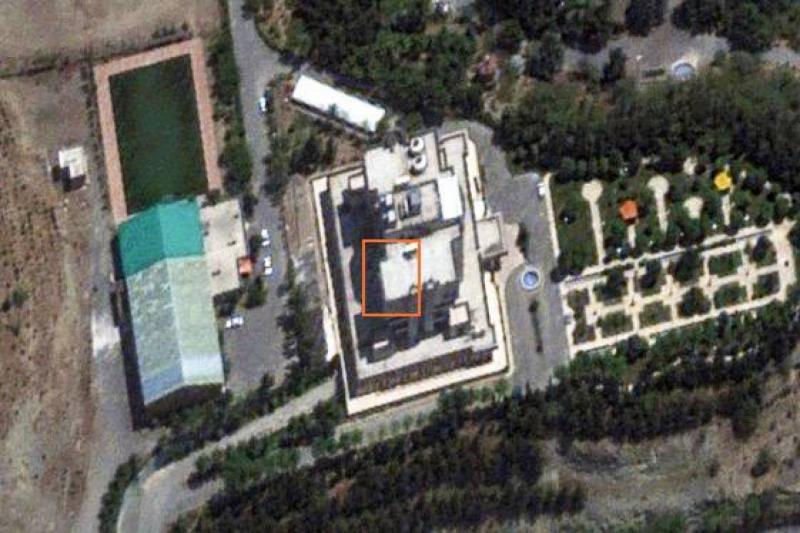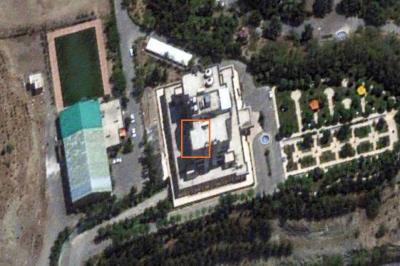A senior source in the Iranian Supreme National Security Council revealed that an American security delegation traveled to Iran with Omani mediation to deliver a message of "calm and warning" to Tehran's leaders, aiming to avoid a major war planned by Israeli Prime Minister Benjamin Netanyahu with support from pro-Zionist lobbies in the United States. The source told the newspaper that the American delegation visited the Islamic Republic on a private plane that took off from Turkey and landed at Payam Airport in Karaj, west of the Iranian capital, last Thursday. A two-hour meeting took place between American and Iranian officials at the airport, which is monitored by the Revolutionary Guards, before the guests returned to Ankara.
The delegation informed Iran that a window for a "face-saving response" had opened after the sudden assassination of Haniya and warned them about the "trap of retaliation." The American security delegation reiterated to the Iranians that the United States was not aware of the operation to assassinate Hamas leader Ismail Haniya and that President Joe Biden was very upset with Netanyahu's unilateral actions. They reached the conclusion that Netanyahu's presence in power does not serve global security and peace, as he has become uncontrollable.
The delegation stated that the Biden administration wants to implement fundamental changes and establish new regional equations that exclude the current Israeli Prime Minister before the end of its term. It noted that Netanyahu "is trying to escape forward and provoke escalation to drag the entire region into a comprehensive battle." The Biden administration provided the Iranians with a list of "Mossad" agents and urged them towards a nuclear agreement that would anger Tel Aviv.
The team confirmed to the Iranians that Netanyahu revealed his plans to several senior officials of the pro-Zionist lobbies during his recent visit to Washington, informing them that it was time for a major war, which would involve not only Israel and the U.S. against Iran and its allies but also all countries in the region, including Arab and Gulf states, Turkey, and African nations. Netanyahu claimed that the outbreak of such a major conflict would force everyone to sit at the same table to accept a comprehensive settlement including "Israel's right to exist and recognition by all in exchange for comprehensive peace for all parties."
The Americans leaked parts of Netanyahu's plan presented to pro-Zionist lobby leaders, where he mentioned that during that war, it would be possible to destroy all the infrastructure of regional countries prior to reaching a comprehensive settlement, which would benefit American companies from a massive reconstruction process, as well as potentially forcing Iran to submit to American will or "be wiped from existence."
The source mentioned that the delegation informed the Iranians that Netanyahu did not hear what he wanted in Washington, as the White House insisted on wanting to end the Gaza war quickly and achieve comprehensive stability in the region. However, he assassinated Haniya to sabotage negotiations for prisoner exchange and ceasefire talks. The delegation noted that the American government would be obliged to defend Israel if Iran attacked it for retribution, which would represent a new opportunity for Netanyahu to evade pressure. Therefore, the United States hopes that Tehran will not fall into Netanyahu's trap.
Additionally, the U.S. side reiterated that Washington does not want a war with Tehran and is seeking to resolve disputes through diplomatic channels, waiting for a response regarding the proposal to return to the nuclear agreement. The delegation believed that if Tehran accepted to return to the nuclear deal, it would represent a "painful blow" to the far-right coalition in Israel concerning launching military strikes, especially as the Democratic presidential candidate, current Vice President Kamala Harris, is ahead of her Republican competitor, Donald Trump, known for his more hardline positions against Iran.
The Americans confirmed their readiness to suspend a series of economic sanctions if Iran agrees not to attack Tel Aviv, and if the issue can be confined to saving face, the two sides could agree on a coordinated process to defuse the crisis that threatens to ignite the region. Security agencies arrested 30 Iranians and 50 foreigners on charges of involvement in the assassination of the Palestinian leader and alleged that the delegation provided a list containing "the names of 10 Mossad agents" inside Iran whom the Americans believe are directly or indirectly involved in the assassination, as a gesture of goodwill and in response to the Israeli strike without coordination with Washington.
In contrast, the Iranian side refused to share any plans for a broad expected retaliatory response and stated that it would raise their message to the higher leadership for consideration before responding. The source concluded his statement by highlighting that investigative agencies arrested around 30 individuals, including senior security figures, as well as about 50 foreigners, mostly Afghans who entered the country illegally on suspicion of involvement in the operation.
In further details: Amid Iran and its allies' insistence on retaliating against Israel for the assassination of Hamas Political Bureau Chief Ismail Haniya in Tehran and the prominent Hezbollah leader Fuad Shukr in the Beirut suburb, diplomatic messages and indications received by Lebanon remain negative regarding the regional situation's developments. Measures being undertaken in Beirut by embassies, along with training for plans to evacuate citizens and employees, all point to significant risks, reinforced by the transfer of the Swedish embassy's entire staff to Cyprus. Reports from Western officials suggest that no party in the world can expect a ceasefire because Israeli Prime Minister Netanyahu does not want one and will continue the war beyond the U.S. elections.
In light of these facts, political communications are underway to contain the situation and deny Netanyahu any opportunity to lure everyone into a regional war. Sources indicate that the Americans are activating their diplomacy to prevent escalation, particularly to ensure that Netanyahu does not use the Iranian response as a pretext to intensify confrontations. If they succeed, this does not mean a halt to the war but rather that it will continue at this pace for an extended period.
The Americans assert that they will defend Israel against Iranian missiles. According to the data, they anticipate a moderate response that would neither be excessively large nor merely symbolic, expecting Israeli casualties while emphasizing that civilian casualties must be avoided. If Israel chooses to retaliate afterward, Washington will not be involved in the response but will only focus on defending Israel.
In contrast, discussions in some back channels address drawing red lines between Americans and Iranians, which include, first, avoiding civilian casualties; second, not targeting civilian facilities; third, ensuring military objectives; fourth, the response should not be continuous and repetitive but rather a single strike; and fifth, regional involvement should not aim for extensive destruction of Israel but be symmetrically representative of a singular strike. Should a multi-front attack against Israel occur, America would find itself compelled to respond and defend, prompting emphasis on focusing the strike to stop further retaliatory actions.
If this framework is adhered to, Iran faces a critical challenge: if its response is not serious and deterrent, Netanyahu may continue assassinations and provocations with security and military operations to break the balance of security and morale. Thus, Iran cannot accept this situation, necessitating a serious strike capable of deterring further provocations. However, there are also Iranian calculations indicating that if Israel decides to respond to these strikes with violent retaliation, and Netanyahu executes similar operations targeting major infrastructure, including the port of Hodeidah and other public facilities in Iran, it could have severe repercussions for Tehran. Some interpret the strike against the port of Hodeidah as a model that can be replicated in various locations and as a direct message to the Iranians, showcasing a side of the negotiations the Americans are maneuvering through.




